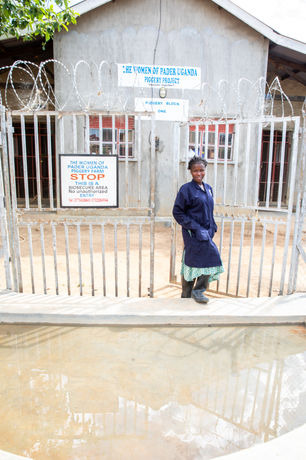
AGRICULTURE DEVELOPMENT
Agriculture is the cornerstone of Uganda's economy, providing essential income for families. With distinct rainy and dry seasons, farming on family-owned or rented land is the primary livelihood for many. At The Women of Pader Uganda, we’re helping to expand farming opportunities for our members and the wider community, providing them with the tools and support they need to thrive. Through innovative programs, we’re creating pathways to financial stability and long-term growth.
Learn more about our agriculture development programs below.
The Maize Project & Mill
The Maize Project was launched to expand farming opportunities and reduce pig feed costs. Women grow maize to feed their families and pigs, and also sell it to TWOPU. With strong harvests, the project now helps sustain TWOPU’s pigs and income-generating efforts. On campus, TWOPU operates a maize mill, allowing us to grind our own maize into feed and posho—supporting both agricultural self-sufficiency and community nutrition.


The Pig Project
The Pig Project has been a tremendous success, starting in 2020 with the distribution of 250 female pigs to women in our program. These women breed their pigs, sharing the first litter with others, offering a tithe to TWOPU, and utilizing the remaining pigs for income or sustenance. The program has produced over 5,600 pigs, with 294 women continuing to participate, supporting local markets and TWOPU’s restaurant in town. This initiative fosters both financial empowerment and community support.
TWOPU Grill
The Pig Project has grown into a thriving local enterprise, with pork sold at TWOPU Grill, our very own restaurant and butcher shop in the heart of Pader town. TWOPU Grill offers a welcoming space for the community to enjoy freshly prepared meals, while also providing high-quality pork for customers to take home.


The Farm
Just outside the Pader airstrip lies a farm generously gifted to TWOPU in 2019 by another organization. Today, this land—along with fields on our main campus—is used to grow maize for The Maize Project. These farms play a vital role in sustaining both our agricultural initiatives and local food systems.











